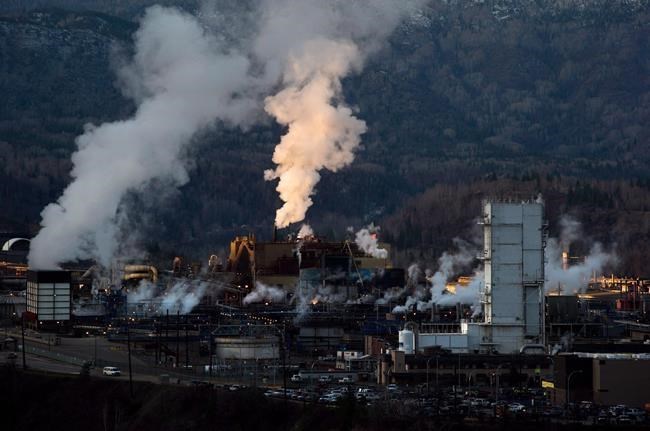VANCOUVER — The long-running chief executive of Teck Resources Ltd. is stepping down from the position on a high note as the mining company reports a fourth consecutive quarter of record profits.
Don Lindsay, who has served as Vancouver-based Teck's president and CEO since 2005, will step down from the role Sept. 30 but stay on in a transition role as executive vice-chairman until mid 2023.
His retirement comes as the company is riding a major commodity boom that has driven up prices for some of Teck's key commodities, and in turn earnings.
Net income attributable to shareholders surged to $1.68 billion or $3.07 per diluted share for the second quarter, compared with $260 million or 48 cents per diluted share a year earlier. Adjusted profit attributable to shareholders was $1.77 billion or $3.25 per diluted share in its second quarter, compared with $339 million or 63 cents per share in the same quarter of 2021.
Revenue for the three months ended June 30 was $5.79 billion, up from $2.56 billion in the prior year.
The increased profits come as the company saw steelmaking coal prices rise 27 per cent from the previous quarter and up 215 per from a year earlier, while Canadian crude prices, which Teck produces as part-owner of the Fort Hills oilsands mine, have jumped 75 per cent. Zinc is up 35 per cent, while copper has seen a two per cent retreat from last year's record highs.
Lindsay said his focus at Teck has been to build up the company's resource base, and its culture, and the financial results are the payoff of that strategy.
"These results really speak to the strength of not just Teck's assets, and certainly commodity prices were a big contributor, but also to the strength of the incredible team of people that we have here."
He noted that Teck's safety record has also improved over his tenure, with total recordable injury frequency down by 80 per cent compared with 2005, and high potential incident frequency down by 90 per cent.
As to the timing of his departure, Lindsay said that Teck is undergoing a transitions to a focus on the green economy, and the company needs a leader who will be able to stick around long enough to see it through.
"We are reshaping and rebalancing our portfolio to have a bigger focus on copper and less on carbon. And with that shift to a new phase of growth at Teck, it is important to shareholders in particular, that the strategy is owned and led by the CEO who will be around and accountable for it in the longer term."
Teck's board of directors says Jonathan Price, currently the company's CFO, will step into the role of chief executive, while Harry (Red) Conger will take on the role of president while maintaining his current position as chief operating officer.
Lindsay is leaving as Teck approaches first copper production at its $5 billion QB2 project in Chile, while the company could have as many as four other projects in production by 2026.
While commodities have seen major prices swings and there is economic uncertainty ahead, Lindsay said he's confident in the future demand, as the pandemic has accelerated demand for metals and minerals that are essential for a low carbon world, including copper, zinc and steelmaking coal.
He noted that a each megawatt of installed offshore wind power requires up to 9.6 tonnes of copper, half a tonne of zinc, and 50 tonnes of steelmaking coal, which adds up quickly for a single 13 megawatt turbine.
"So you can really look at Teck as the procurement arm for the clean energy wind power companies."
Lindsay also said he's seeing a shift in thinking in Ottawa on the need for these resources as the pandemic, Russia's invasion of Ukraine and other geopolitical events change perceptions.
"People at the highest levels of government are starting to recognize that critical minerals really are critical."
He said that he's seeing more understanding of the need to increase production, but that it takes a very long time for these shifts to have an effect.
"The world will fix itself in terms of global recessions, those sort of thing, and demand will come back and there just won't be enough supply available."
This report by The Canadian Press was first published July 27, 2022.
Companies in this story: (TSX:TECK.B)
The Canadian Press



